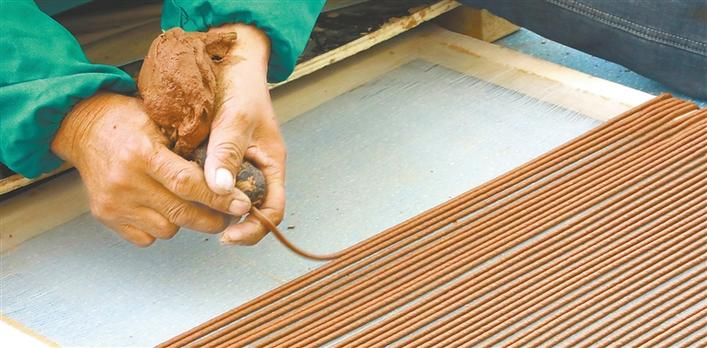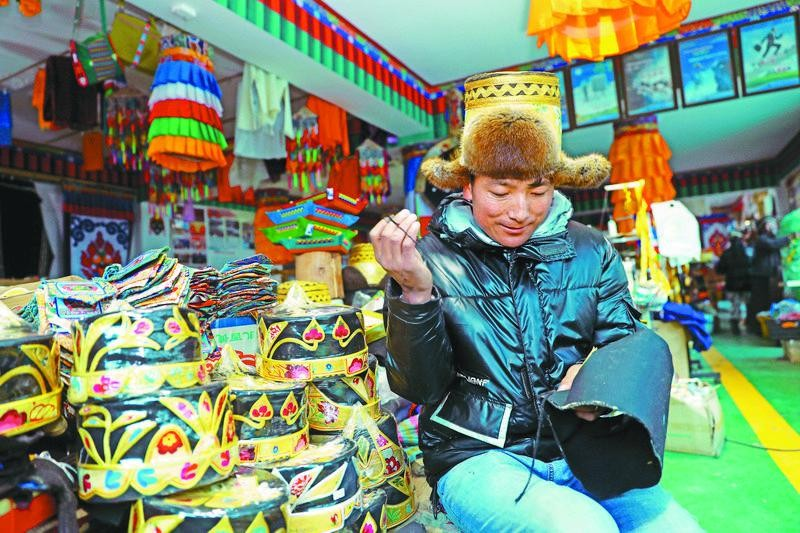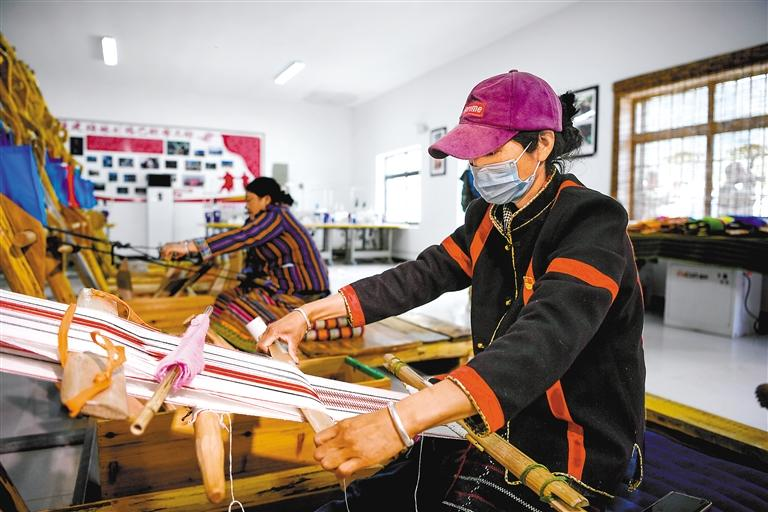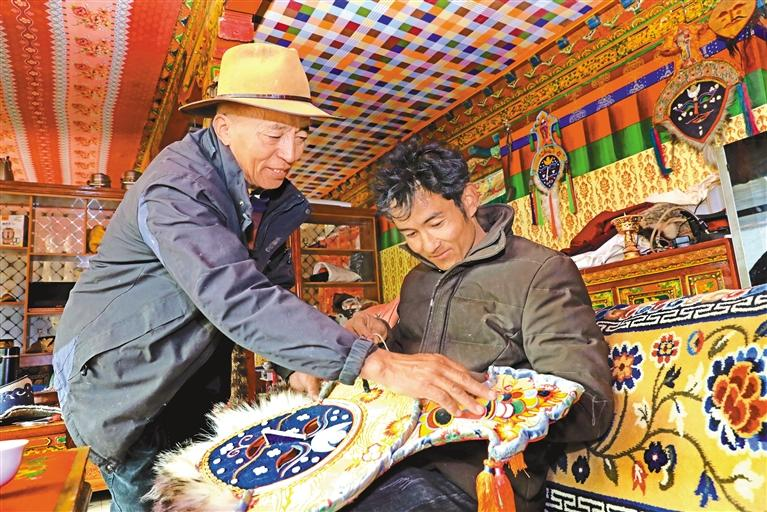By Zhu Nan, Liu Fang Source:xzxw.com 2023-02-01
In recent years, in order to strengthen the construction of intangible cultural heritage workshops, promote rural revitalization, and explore a new path to cultural enrichment, relying on intangible cultural heritage resources, southwest China's Xizang Autonomous Region has set up 151 intangible cultural heritage workshops covering 49 counties, driving 6,065 people to learn skills and find jobs nearby home, and realizing an average annual income of over 31,000 yuan RMB.

Photo shows a worker making herbal incense. [Photo /Lu Lijuan, Kelzang Lhundrup, Nyima Lhadron]

Photo shows a technician picking up dried herbal incense. [Photo /Lu Lijuan, Kelzang Lhundrup, Nyima Lhadron]
In July 2018, Nyemo County was included in the first batch of "intangible cultural heritage + poverty alleviation" key support pilot counties by the Ministry of Culture and Tourism and the State Council Leading Group Office of Poverty Alleviation and Development. To find a right way to promote poverty alleviation, the Department of Culture of Xizang Autonomous Region actively explored the working mode and poverty alleviation strategy of "intangible cultural heritage + poverty alleviation", which provided jobs for 111 registered poor households in Nyemo. In January 2020, the cultural and other related departments promoted local experience, focused on wool textile, wood carving, metal forging technology, traditional art and other projects, then brought workshops, cooperatives and enterprises with large production scale and strong employability into the establishment of intangible cultural heritage workshops.

Photo shows a worker of Langxia Traditional Knitting Processing Specialized Cooperative of Maizhokunggar County making straight hole Langxia (Pulu hats). [Photo/ Kelzang Lhundrup, Luoke]
To expand sales channels and improve social influence, the Department of Culture has set up exhibition areas for featured products on traditional festival nodes to enhance market influence. In addition, it actively explores the sales channel of "intangible cultural heritage + Internet", builds the brands, and further expands the influence of local intangible cultural heritage products.

Photo shows workers of the Lhopa Weaving Farmers and Herdsmen's Specialized Cooperative weaving cloth. [Photo /Tenzin Lhamze]

Photo shows Gyatso (L), an inheritor of the intangible cultural heritage of Lhasa City and the fifth generation inheritor of Dapu Linnai traditional clothing making technique in Maizhokunggar County, teaching his apprentice mask making skills. [Photo/ Phentok]
Intangible cultural heritage workshops not only increase people's income, but also better inherit excellent traditional Chinese culture, according to a relevant cadre of the Department of Culture of Xizang Autonomous Region. Next, they will continue to promote the construction of intangible cultural heritage workshops within the whole region, to help more inheritors perceive the changing times and people's needs, refresh traditional skills in the new era, further broaden the new path of cultural enrichment, and make contributions to rural revitalization.
Copyright © Xizang Daily & China Xizang News All rights reserved
Reproduction in whole or in part without permissions prohibited
Index Code: 藏 ICP 备 05000021 号
Producer: Xizang Daily International Communication Center